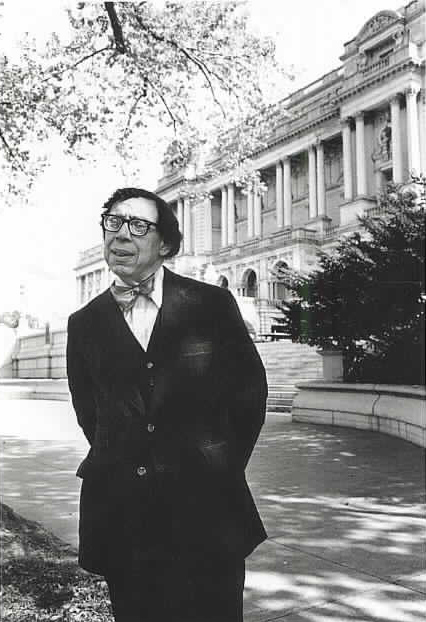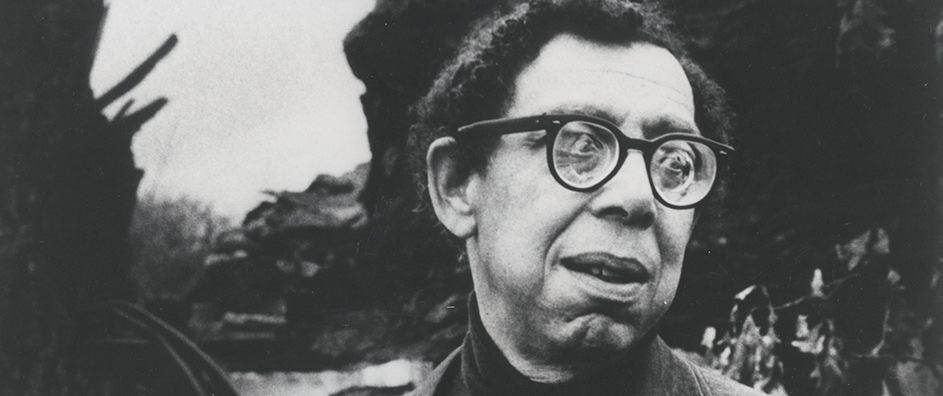The views expressed in our content reflect individual perspectives and do not represent the authoritative views of the Baha'i Faith.
The people’s poet!
The first major accolade accorded to Robert Hayden came as spontaneous pronouncement following his recitation of his mass chant, These Are My People, at a Detroit United Auto Workers Union Rally in 1939 at the young age of 25.
You can find his eight page opus, later performed by a “verse chorus” and then dramatized by the Negro Group Theater in Chicago, included in a volume of poetry Hayden titled Heart-Shape in the Dust. Dr. Christopher Buck describes this volume as having been written: “…during Hayden’s left-wing, proletarian phase. The poems have a pronouncedly populist style, providing social commentary on racism, lynching, and economic oppression.”
In her review of the book, literary critic Gertrude Martin noted:
Mr. Hayden deserves the acclaim and encouragement of readers everywhere….These first poems have a maturity of conception and a polish of form that make one look forward with interest to Mr. Hayden’s artistic development. We hope that, unlike some of the major Negro poets, his career will be one of continued production and improvement.
Her wish came true. While much of the work of the era’s Negro poets seemed reactionary, angry, and at times anti-white, Hayden approached issues of racism and exposed the historical wrongs inflicted upon African-Americans, but in a manner that educated and reached into the heart of the readers to help them understand the issues, to make them care. His work contained no angry rants that would alienate white readers. Dr. Buck wrote:
On the principle that race divides while a higher identity unifies, Hayden presented himself as an American poet rather than as a black poet. His greatness is that he was really both, and that his art was a fusion music of the American experience.

Robert E. Hayden
Hayden’s poetry contains elements of hope, which promoted the concept of achieving harmony between all people of all races. His themes, even when decidedly about issues of race, had a universal appeal. He sought to develop not just an American identity for all races living in this country, but to go further and develop universal consciousness with a simply human identity. This all addressed Ms. Martin’s hope for his “continued production.” As to his “improvement,” Hayden continually edited and re-edited his works. He strove to perfect each piece. Everything he wrote became a work-in-progress, even post-publication.
In between earning his Master’s Degree and teaching at a number of different universities, he found time to write and publish no less than eleven volumes of his poetry between 1940 and 1985. Hayden twice won the Summer Jules and Avery Hopwood Award, and when he participated in the First World Festival of Negro Arts in Dakar, Senegal in 1966, he won, by unanimous vote, their Grand Prize for Poetry. So impressed was the president of the country, that he named Hayden Poet Laureate of Senegal.
He served as Consultant in Poetry to the Library of Congress from 1976 to 1978. That post, later renamed Poet Laureate, in effect makes Robert Hayden the first African-American Poet Laureate of the United States. He’d been vilified by other Negro Poets for not labeling himself as they did, and for not embracing “art as propaganda.” His was a wider, more unifying focus. If he’d insisted on limiting himself to being a “Negro Poet,” he would not have had such a universal appeal and couldn’t have earned this prestigious position.
With 1976 the year of the Bicentennial of the signing of the Declaration of Independence, and Hayden holding this national post, he was, in essence, our Bicentennial Poet. With this special year in mind, he wrote what has come to be called the “Bicentennial Poem.” “American Journal,” the last poem in his last book, presents a penetrating look at the American psyche, and indeed the plight of all humanity, from the viewpoint of an extraterrestrial visitor from a more evolved society. At times humorous, at all times incisive, it leaves the reader knowing that change must take place, that it can take place, and though it shows us our faults and failings, leaves us with hope for a healthy future society and the will to bring it about.
Hayden’s works have a definite spiritual basis. Having embraced the Baha’i Faith in 1943, he took his inspiration from his study of Baha’i scripture. This excerpt from a talk given by Abdu’l-Baha in London illustrates the Baha’i teachings on this momentous topic:
As the East and the West are illumined by one sun, so all races, nations, and creeds shall be seen as the servants of the One God. The whole earth is one home, and all peoples, did they but know it, are bathed in the oneness of God’s mercy. God created all. He gives sustenance to all. He guides and trains all under the shadow of his bounty. We must follow the example God Himself gives us, and do away with all disputations and quarrels. – Abdu’l-Baha in London, p. 38.
















Comments
Sign in or create an account
Continue with Googleor